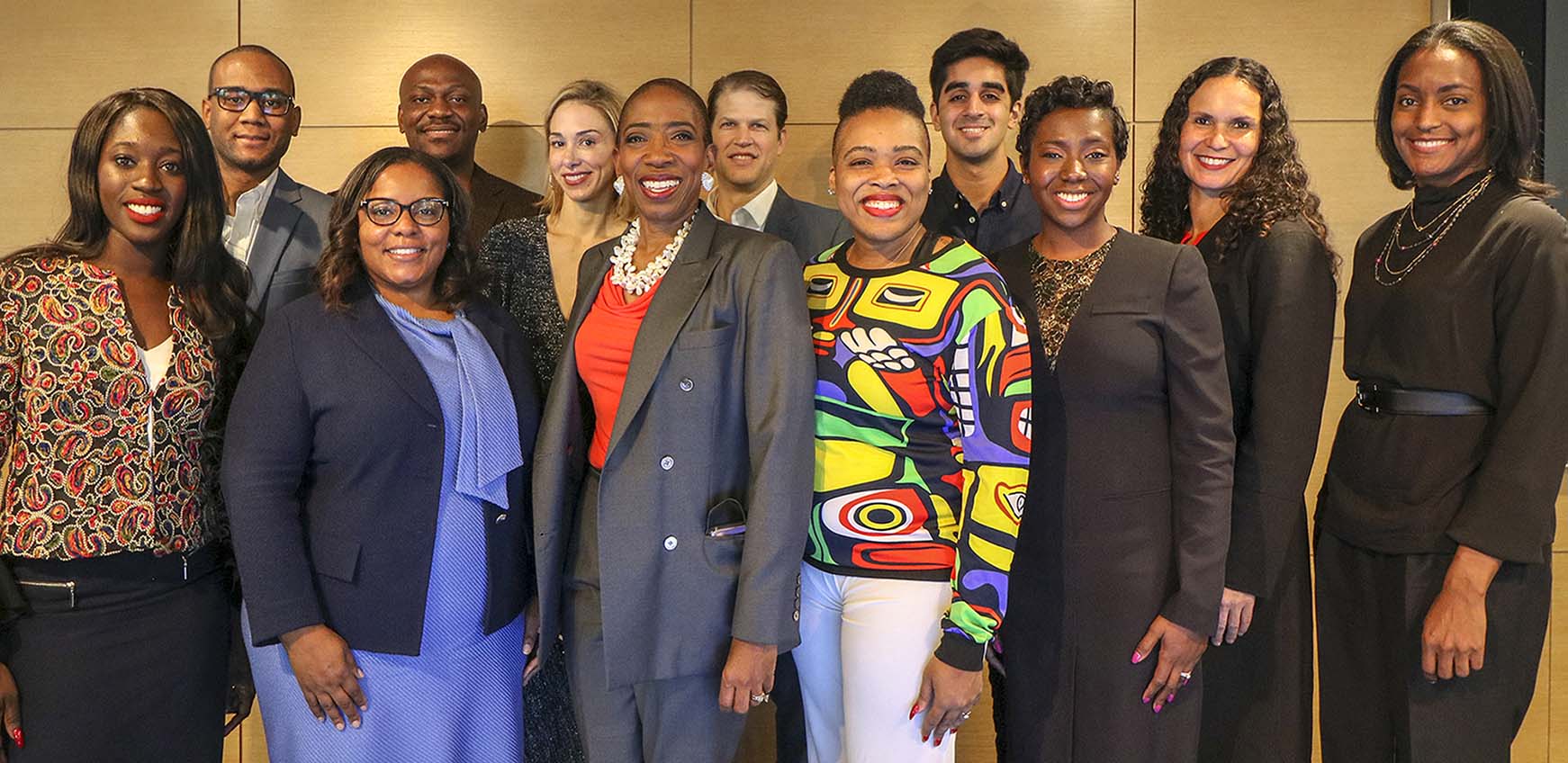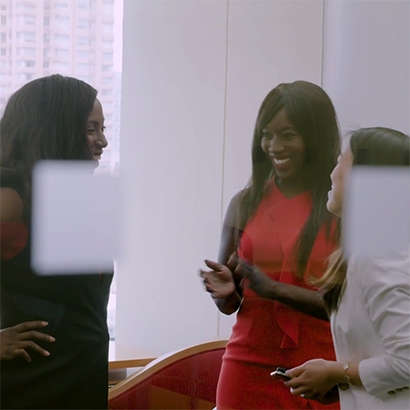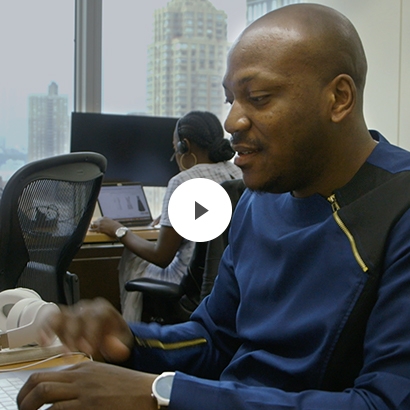On Demo Day at the Multicultural Innovation Lab, women and multicultural entrepreneurs get the spotlight they deserve.
Finally, it was show time.
After months of mentoring, collaboration and guidance in growing their companies, the founders of the nine startups in Morgan Stanley Inclusive Ventures Lab took the stage at the firm’s headquarters to pitch their businesses to a roomful of eager investors.
The event, Demo Day, was a familiar experience for the investors—and anyone who watches “Shark Tank”—but with a twist: The participants in Morgan Stanley’s technology accelerator are women and multicultural entrepreneurs—who are too often overlooked, ignored or undervalued by the investment community.
“There is a huge disparity in the share of capital going to multicultural- and women-owned businesses, and we are doing our part to draw attention to that and correct it,” says Carla Harris, the Morgan Stanley Vice Chairman who founded the Lab last year.
The idea of the Lab is to level the playing field for these founders, whose access to capital is vastly unequal. The figures are stark: In 2016, less than 2% of startup financing went to women founders, and only 1% went to African-American and Latino founders, according to the Kauffman Foundation.(1)
To help make a difference, the Multicultural Innovation Lab invites a select number of entrepreneurs to work in Morgan Stanley’s offices, and connects them to the expertise they need to help refine their business plans. Each participant receives a $200,000 equity investment.
The culmination of the experience is Demo Day, the opportunity to present themselves and their companies—in seven minutes or less—to investors whom they might not otherwise be able to reach.
“The things we provide are the capital, content and connections,” Harris told the crowd on Demo Day.
James Gorman, Chairman and Chief Executive of Morgan Stanley, called the Lab a “phenomenal” innovation. “We are trying to create an opportunity to bring investors and money to where the talent is,” he told Bloomberg News on Demo Day. “We’ve had over 100 investors come through, and I’m just so proud.”

A Thriving Program
Last year’s inaugural class consisted of five companies, explained Harris. Those five have flourished, she said: Two have been acquired; one has done an ICO; another has graduated to another accelerator; and the fifth has acquired more than 10 corporate customers, proof of its growth potential.
This year’s cohort comprises nine companies: BeautyLynk, Broadway Roulette, CariClub, COI Energy, COSIGN, Goalsetter, Hatch Apps, myLAB Box, and Shoobs.
Companies from several other accelerators also participated in Demo Day. These partners—HearstLab, Newark Venture Partners Labs, and PS27 Ventures—share Morgan Stanley’s vision of building a community of diverse entrepreneurs.
“I really hope that the impact for today is to highlight the business case around multiculturalism,” says Alice Vilma, Managing Director of Multicultural Client Strategy, who has worked closely with all of the participants throughout their time in the Lab. “Just because investors don’t know certain types of entrepreneurs, does not mean that women and multicultural founders and the markets they address are not worthy of investment.”
The audience on Demo Day—including institutional investors, venture capitalists, family offices, and high-net-worth individuals—seemed impressed by the talent, enthusiasm and innovation on display. They were invited to schedule one-on-one meetings with the companies after the presentations.
“I came here to look for a group of talented and unique founders with exceptionally diverse backgrounds,” said Jai Sajnani, an investor with New Enterprise Associates who attended the event. “This is a whole new wave of opportunities that we’re not used to seeing on a day-to-day basis.”
Poignant and Persuasive Pitches
The entrepreneurs who pitched on Demo Day brought their best game.
“We are living in a generation where every company is expected to be either a tech company or tech-enabled,” said Param Jaggi, CEO of Hatch Apps, explaining to the crowd why they should invest in his company, which builds low-cost apps for its clients. “We’re on a mission to democratize software for the businesses that need it.”
Tanya Van Court, CEO of Goalsetter, described a pilot that Morgan Stanley had done with her company, which sets up bank accounts for children to teach them the value of saving money. The pilot and the support she has received from the firm have opened many doors, she said.
“Our partnership with Morgan Stanley is only the beginning for us,” Van Court said. “Now we’re in discussions with school districts, Fortune 100 companies, nonprofits. Our goal is to change the world for the next generation of kids and families.”
Lora Ivanova, CEO of myLAB Box, was similarly expansive. “What if taking care of your health were as easy as shopping online for your favorite pair of shoes?” she asked the audience, by way of introducing her company’s at-home testing kit for sexually transmitted infections.
“We are among the most comprehensive STD testing kits on the market,” she said. myLAB Box sees an opportunity to expand its offerings, “taking what we learned in the sexual health space and applying it over additional health testing verticals.”
After the company presentations, Thomas R. Nides, Vice Chairman of Morgan Stanley, addressed the gathering and noted that he had been a mentor to some of the entrepreneurs. “These are fantastic ideas,” he said. “I could not be happier with the fact that these companies will walk around the world and say that Morgan Stanley is an investor.”
Last year, the first in the Lab program, 150 startups applied for five slots; this year, 300 applied for nine slots. The application process is now open through January 4th, for next year’s Lab cohort, which is expected to be even larger.
1. Kauffman Foundation, Larry Jacob (July 2018) “Three Trends That Prevent Entrepreneurs from Accessing Capital”



